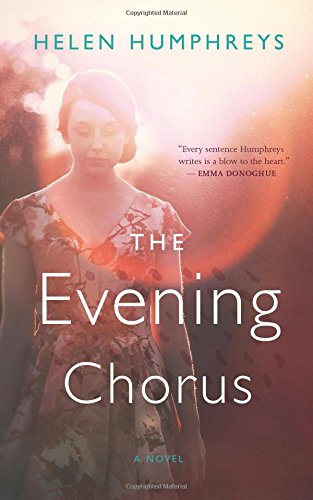The Evening Chorus
On his first bombing mission in 1940, James Hunter’s plane is shot down over the English Channel. Captured by Germans, James spends his time in the prison camp studying his fellow inmates, watching them plan their always-thwarted escapes, and distracting himself from the horrors of war by studying a pair of nesting redstarts. Back in England, his wife Rose struggles between the constraints of her parents’ needs and the realization that she married James too hastily. The feeling of entrapment increases with the arrival of Enid, James’s sister, who has nowhere to live after her London flat is bombed during the Blitz. Enid, like her brother, finds solace and purpose in studying nature, and builds a tentative friendship with Rose while documenting the local flora and fauna.
The cycle of nature – birth, mating and nesting, learning to fly (and perhaps not succeeding the first time around) – aren’t limited to James’s birds; they’re seen in all the characters, which Humphreys brings to life in her lyrical, compelling prose. The disruptive effects of war on humans as well as nature are in full force, as each character deals with loss, regret, and the unintended exposure of secrets. There are many stories in The Evening Chorus, from the soldier-gardener, to the magazine editor, to the dog-breeding farmer. Each is a well-wrought portrait of the time and place, and shows the endurance of nature and humanity. The theme of quiet despair is accompanied by flashes of happiness; the characters, like nature, grow and move forward, however slowly, in spite of the destruction that war wreaks on both home and heart.










